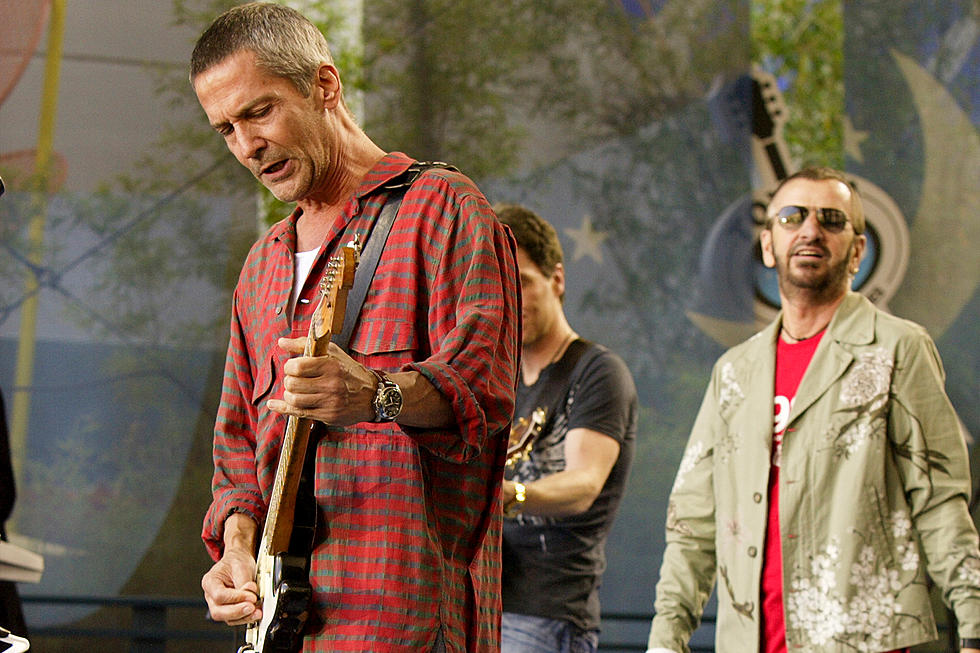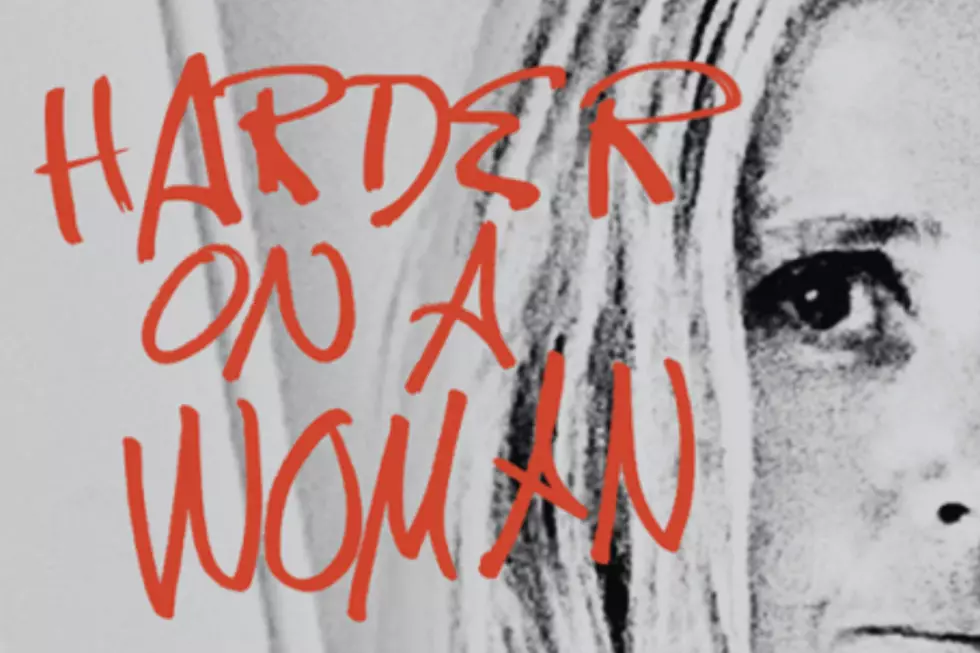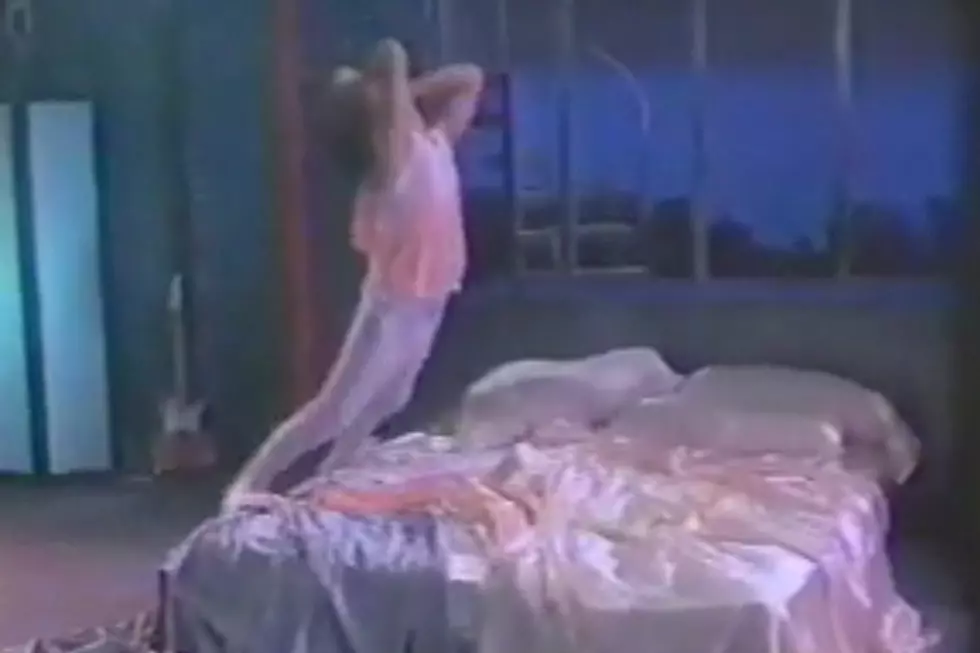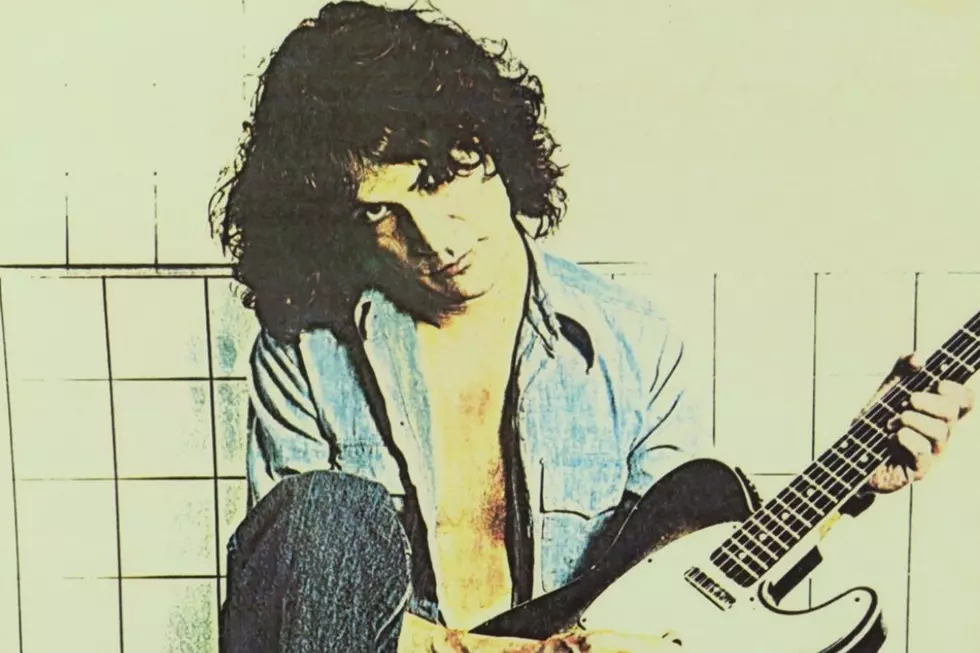Weekend Songs: Billy Squier, ‘Don’t Say You Love Me’
Classic rock is about heavy hooks, power chords and tight harmonies. But it’s also about letting loose and enjoying the good times. And there’s no better time for that than Friday evening, when we pick up our paycheck, punch out of work and enjoy a couple days of much-needed rest and relaxation.
When you're working a steady 9-to-5 gig, the weekend is a regular break you can look forward to. For rock stars, though, downtime comes a lot more irregularly -- and not always at the most opportune moments. Consider the case of Billy Squier, whose career seemed ready to launch into the stratosphere in the early '80s, when his second solo album, 1981's 'Don't Say No,' turned him into a multi-platinum household name. 1982's 'Emotions in Motion' continued his hot streak, and initially, he seemed poised for official rock god status when 1984's 'Signs of Life' came out -- until, of course, the infamous video for the leadoff single, 'Rock Me Tonite,' hit MTV.
The legend of 'Rock Me Tonite' has already been covered to death, so we won't get too deeply into it here; suffice it to say that some questionable decisions by director Kenny Ortega fed into some unfortunate homophobic tendencies in the mainstream rock audience, and Squier's career took a spectacular nosedive right in the middle of the 'Signs of Life' tour. By the time he returned with 'Enough Is Enough' in 1986, his commercial momentum had slowed considerably -- the record stalled outside the Top 60 on the Billboard album chart and sold fewer than 250,000 copies, leaving him at an unexpected career crossroads for the follow-up.
Squier would ultimately take three years to finish his next LP. It was a period in which, as he later told interviewer Eddie Trunk, "I was wandering in the darkness of [New York studio] the Power Station, trying not to listen to anyone ... I was really trying to find my way back." That process involved working through a lot of material and trying different production approaches as he winnowed in on a set of songs he could be satisfied with. "It took awhile," he admitted to Trunk. "It turned out to be a lot of work. It was kind of a journey through the darkness for awhile, but it kind of got me back on the right track."
The end result of all that work was 'Hear & Now,' released with little fanfare on June 14, 1989 -- and despite Squier's admission that it took a lot of tape to get the songs together, it also turned out to be what he deemed a "not fussed with" record, with fairly dry production that relied more on songwriting (and crunchy guitars stacked on top of booming drums) than a lot of the synth-sweetened LPs of the era. Five years removed from the 'Rock Me Tonite' disaster, Squier still needed an undeniable hit single to strongarm his way back onto the charts. Fortunately, he had one at the ready: 'Don't Say You Love Me.'
While it didn't have as much of an impact on the pop charts, where it stalled outside the Top 40, 'Don't Say You Love Me' returned Squier to MTV rotation and was a major hit at rock radio, where it cracked the Top Five and helped jump-start the album's eventual gold sales certification. After skating to the brink of oblivion, it looked like Squier's fortunes were back on the rise. Unfortunately, 'Hear & Now' ended up being more of a blip before the flatline, as both of his subsequent releases for Capitol Records -- 1991's 'Creatures of Habit' and 1993's 'Tell the Truth' -- failed to gain much commercial traction.
In a 1996 interview conducted to promote a contract-terminating best-of set, Squier professed to have no bitterness toward the label, but admitted an unwillingness to keep recording music in the face of what he saw as corporate indifference. "I felt that I was evolving as a writer, and I think that there's certainly a lot of work on those records which is certainly the equal of previous stuff, if not better," he told South Coast Today. "It didn't shake my confidence at all. I just decided I didn't want to be in the music business. I felt that I was not going to do this work anymore if it was going to be treated this way."
And aside from a couple of returns to studio action (for 1998's 'Happy Blue' album and a trio of 2009 singles), Squier's maintained that position, seemingly content to go out on the occasional tour and collect sampling royalties rather than continue chasing the brass ring. Still, even if his recording career sputtered to a stop a lot faster than it probably should have, the way he battled past a career setback with 'Hear & Now' remains impressive. If you're feeling boxed in and worn out this Friday, take a page from Billy Squier and fight back -- you never know when you might land that one last hit.
More From Ultimate Classic Rock









